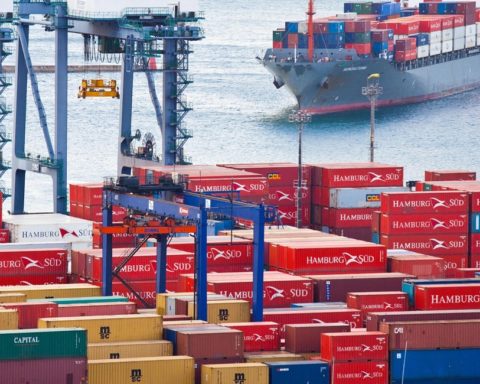Energy crystallizes all the facets of the relationships we have with our own techniques, and all the misunderstandings they generate. The source of these misunderstandings comes from the fact that we consider our techniques as absolutes, self-sufficient in themselves, allowing us to decide everything, to extract ourselves from any situation. This is not the case, and only a good understanding of our techniques can allow us to make good use of them, and not expect more from them than they can give us. It is to this more philosophical aspect of things that this text by Dominique Bourg is dedicated.
Aechnologies are not absolutes in the sense that they form intermediaries between us and the world, or nature, as well as between us and ourselves. As such, they do constitute a form of screen, while at the same time making it possible to loosen clamps; but only if we remember that there is something behind the screen, and that the screen itself owes a great deal to this other thing, starting with the fabric of the materials of which it is composed.
Capturing energy
In this respect, the case of energy is exemplary. Contrary to what seems to be the meaning of ordinary language, or the advertisements of certain operators, human beings do not produce energy, which is constant within the universe; but they manage, with various instruments or intermediaries, to capture it.
This capture obviously has a cost, primarily in terms of energy but also in terms of materials. I cannot capture energy without using it. This is the famous "energy return rate" (energy return on energy investment or Eroi), which refers to the ratio of energy expended to usable energy.
In the great era of the oil saga, all you had to do was invest one unit of energy (in this case, a barrel of oil) to recover 100 (the Eroi was then 100). With the oil sands, 1 unit invested only allows for the recovery of 4 to 5, and this does not include the energy included in the required infrastructure, transportation and transformation of the captured energy; we will speak here of an "extended" Eroi.
More and more materials
First conclusion: it makes no sense to talk about infinite energy. Any capture has a cost and depends on a context, made of circumstances and materials. And to go and get "the last quintal of fossil fuel", as Max Weber imagined in Protestant Ethics and the Spirit of Capitalism (1904), would probably require several barrels.
The difference between available energy and mobilised energy also makes it possible to distinguish between reserves and resources, which is true not only for energy alone but for all underground resources. A resource can thus be abundant, whereas reserves - i.e. the technically and energetically accessible part of that resource - can be limited.
Second conclusion: capturing energy does not only require energy, but also materials. This is precisely one of the important limiting factors for renewable energies, wind or photovoltaic, greedy for rare and semi-precious metalslike the famous rare earths, even though of progress allow you to loosen the vise somewhat.
Our lifestyles
It is therefore difficult to imagine satisfying a population of ten billion human beings (expected by 2050) with a standard of consumption close to that of the former industrialised countries, if only in terms of and copper networks available.
In addition, the techniques are no longer embedded in a purely material but economic context, inseparable from various rules and their interdependence with particular lifestyles. On the first point, let us recall the "rebound effect", first identified by the British economist William Stanley Jevons in The Coal Question (1865). It refers to the mechanism by which the improvement of the technological quality of a good leads to an increase in its consumption.
In the case of energy, this effect can be both direct and indirect. Direct, such as raising the temperature in a perfectly insulated apartment or driving more kilometres in a very energy-efficient vehicle. Indirect, such as spending money on other energy purchases, for example by carrying over the money saved in heating bills for air travel.
Remember that the rebound effect is one of the keys to growth. In a world where the inflows into the economic system would be controlled and limited, the effects of technical progress and other productivity gains would change dramatically. They would no longer feed the growth of flows and GDP, but the absolute reduction of flows, or the reduction of working time.
In terms of linking techniques to lifestyles, this is well known for eco-neighbourhoods, whose technical devices rarely provide the expected energy results because they do not meet the lifestyles and expectations of the inhabitants (see in this respect the research conducted under the programme Movida). On the other hand, when these facilities are occupied by ecologically committed inhabitants, accepting for example the principle of car-sharing made inevitable by a limited number of parking spaces, the expected results are there.
The climate is pressing us
In their introduction, Patrick Criqui and Michel Damian highlighted the gap between the climate emergency - global greenhouse gas emissions should be reduced by at least half by 2030, carbon emissions should be halved by 2050 and negative emissions should be avoided by the second half of the century - and the 3 % share of renewable energies (excluding hydropower) in the global energy supply, the 6,700 coal-fired power stations that spit out their carbon, the agreement between Russia and China to secure oil exploitation in the Arctic, the construction of coal-fired power stations under Chinese leadership in Pakistan and in many southern African countries, Trump's attempts to revive coal, etc. In addition, the inertia of behaviour and the inertia of infrastructure are decisive factors.
There is something highly paradoxical about this situation. It is the time of the climate, which is very long - the temperature we will reach by the middle of the next century will last for millennia and it will take wait 100,000 years so that almost all of the carbon that we have accumulated in the atmosphere has been absorbed - which is becoming excessively pressing, and is being slowed down, for the worst, by the passage of time and our inertia.
Sapiens?
Let us note that, contrary to what our western civilization has always claimed, there is no technical solution to all our problems. Such is the case with climate.
It is far too late to solve and dissolve the problem of climate change. We can mitigate it, and must do everything we can to do so, but we will have to adapt, as far as possible, to a changing world, as we who have always claimed to control it. This is one of the deepest meanings of entering the anthropocene.
Finally, let us underline another abyss: that between the knowledge we have accumulated and its almost total ineffectiveness in moving quickly and efficiently to stop compromising the habitability of the Earth. Is there any clearer proof that we are not worthy of our qualification as a "knowledge society"? sapiens ? Knowledge and abstract representations have little influence on us and our behaviour. We remain animals reacting to immediate realities and threats, to strong and obvious sensations, animals however endowed with a power to make or rather to destroy that seems to be beyond us.
There is still time for us to learn the proper, by definition limited, use of our techniques.
Dominique BourgPhilosopher, Professor at the Faculty of Geosciences and Environment, Lausanne University
The original text of this article was published on The ConversationUP' Magazine's editorial partner.
Header image :Balance/Imbalance, photovoltaic project by architect Hideaki Nishimura
Anything to add? Say it as a comment.![]()












